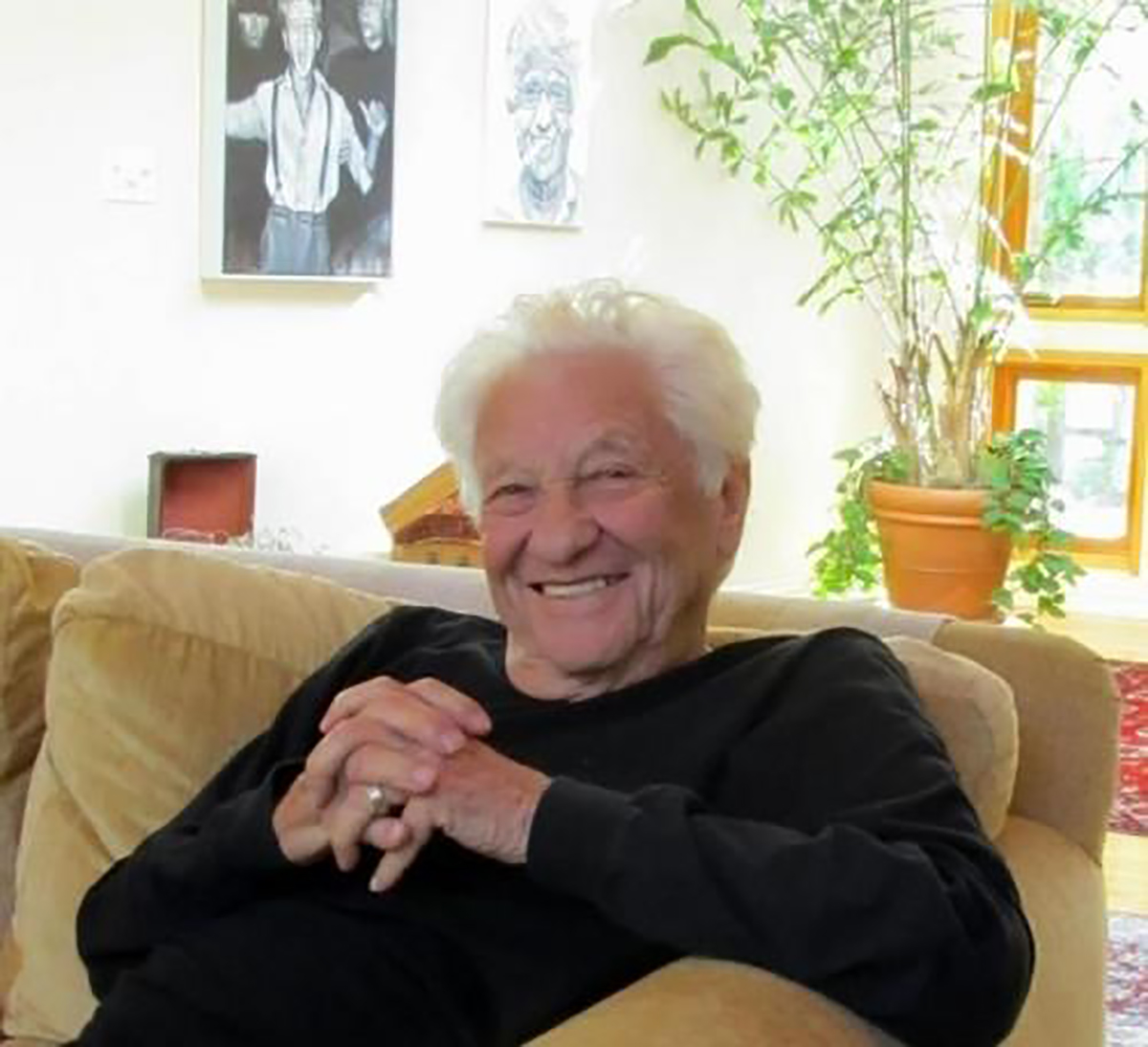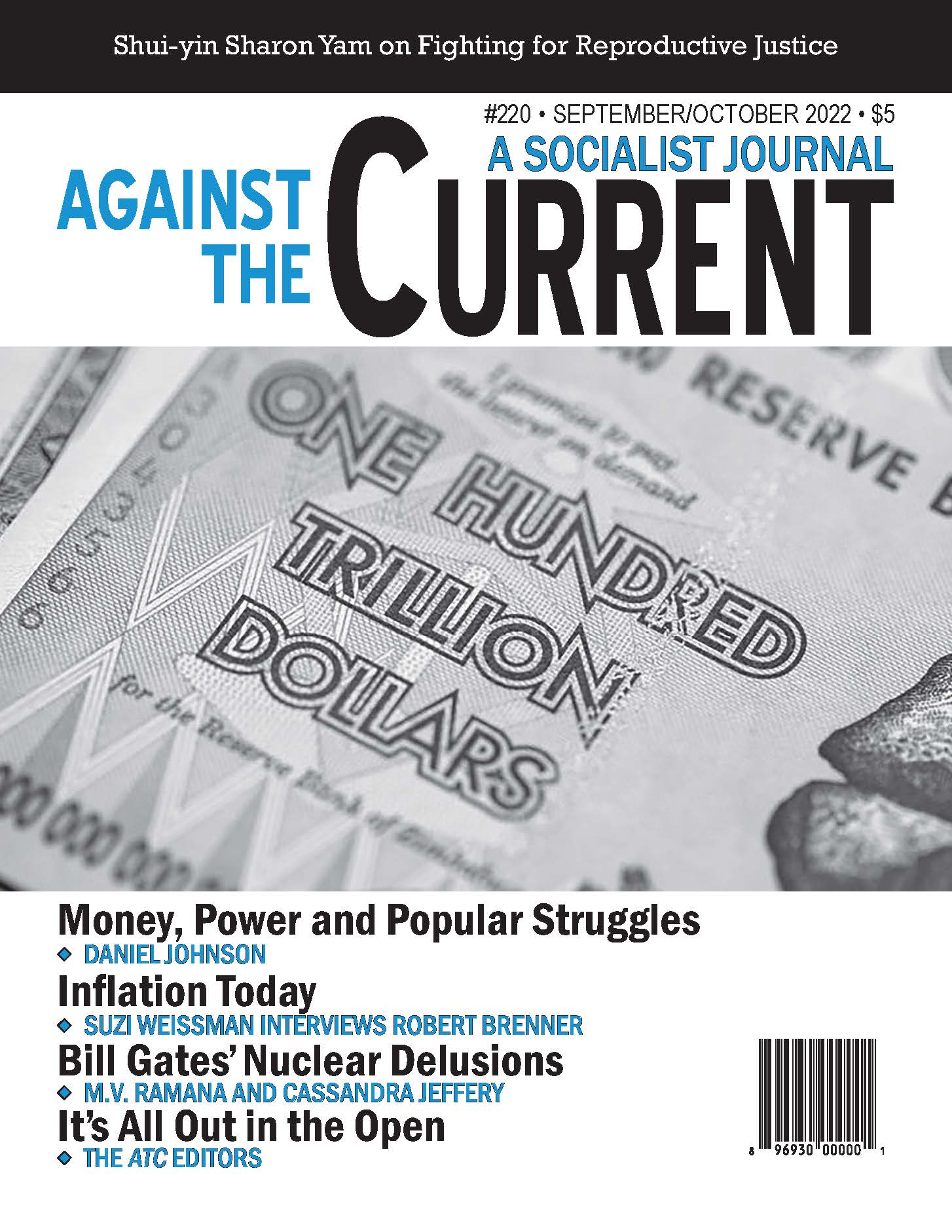Against the Current, No. 220, September/October 2022
-
It's All Out in the Open
— The Editors -
Fighting for Reproductive Justice
— Shui-yin Sharon Yam -
California's Reparations Task Force
— Malik Miah -
The "Bruce's Beach"
— Malik Miah -
2022 Labor Notes Conference
— Dianne Feeley -
Bill Gates and Techno-fix Delusions
— M.V. Ramana and Cassandra Jeffery -
The Fight Over Inflation
— Suzi Weissman interviews Robert Brenner -
UAW Convention: Change in the Wind
— Dianne Feeley -
International Tribunal Verdict: "Guilty of Genocide"
— Steve Bloom -
Philippines: Continuity of Violence
— Alex de Jong -
"Can I at Least Have My Scarf?"
— Anan Ameri -
Echoes of Money in Times Past
— Daniel Johnson - Reviews
-
The War Upon Us
— Jerry Harris -
Texas: Darkness Before Dawn
— Joshua DeVries -
New Veterans, New and Old Problem
— Ronald Citkowski -
Anan Ameri, Life and Community
— Dalia Gomaa -
Joe Burns' Class Struggle Unionism
— Marian Swerdlow -
Radical Memories of Two Generations
— Paul Buhle - In Memoriam
-
Leo Frumkin, 1928-2022
— Sherry Frumkin -
Living with Political Clarity: A Tribute to Xiang Qing
— Au Loong-yu and translated by Promise Li -
Alain Krivine, 1941-2022
— John Barzman
Sherry Frumkin

TO HIS GRANDCHILDREN and great-grandchildren, Leo Frumkin was the funniest man on the planet. With sparkling blue eyes and a full head of silver hair, he told jokes that made them giggle with glee up until weeks before his death. With a natural ease and a smile that would light up the room, he lived his life dedicated to creating a more just, equitable and sustainable world for them, his entire family and for the world.
Leo was born in East Los Angeles on August 4, 1928 and died June 23rd, just shy of his 94th birthday. Throughout his long life, he was a powerful and highly effective force for peace and social justice.
Leo was greatly influenced by his older sisters and brothers-in-law, all of whom were members of the Socialist Workers Party, and by the multi-racial and multi-ethnic communities of Boyle Heights and Belvedere where he grew up. [See historian George Sanchez’s Boyle Heights: How a Los Angeles Neighborhood Became the Future of American Democracy (2021). Leo is featured in Chapter 3.]
As a high school student, he formed a youth group affiliated to the SWP. While a senior at Roosevelt High School, he helped organize and lead a student strike to protest an appearance by the fascist agitator Gerald L.K. Smith. He was arrested along with other student activists. A November 2, 1945 photo of him in the Los Angeles Examiner was the inspiration for a painting of that moment. It became a focal point of the home in Tarzana he shared for 45 years with his wife Sherry and their two daughters.
At 19 Leo was elected president of a UAW Local, the youngest person at that time ever to hold that position. During the Korean War became a merchant seaman, but was drafted off a ship into the U.S. Army. Just as promptly, he was thrown out of the Army because of his socialist political beliefs and outspoken opposition to the war.
The Army later reversed itself and issued him an honorable discharge. With GI Bill benefits, he studied radio at LA City College. His deep, resonant voice landed him a job as a disc jockey at a Burbank radio station where he used the name Lee Davis. The station insisted Frumkin sounded too Jewish.
However, his brief radio career was cut short when he refused to cross a picket line set up by the station’s engineers who were trying to form a union. Once again, his political sympathies landed him on a blacklist.
Activism and Hope
At the height of the McCarthy period Leo, as an activist in the SWP, became the chairperson of the Wendell Phillips Academic Freedom Committee, which led a successful public campaign to reinstate the Fullerton Junior College instructor who had been fired for refusing to “name names.” Also as a SWP activist, Leo was a founding member of the Fair Play for Cuba Committee. Later he helped organize and defend the massive mobilizations against the war in Vietnam.
In reading hundreds of pages of files obtained through the Freedom of Information Act — obtained with help from the ACLU — Leo later learned that the FBI had been following him for years. But they bumbled in their efforts to have him arrested for belonging to an organization on the Attorney General’s List (which at its peak contained 90 organizations considered “subversive,” including everyone from the Quakers to socialist and communist groups). However, they went so far as tailing him to the Little League games he coached for his son.
Screened out of the merchant marines, kicked out of the Army and blacklisted from radio, Leo worked for and then founded a successful automotive parts business which he ran for 41 years. He settled for a lesser price from a buyer who would guarantee that all the 70-plus employees would retain their jobs, and retired at age 84.
Leo was greatly disheartened by the rightward shift in the United States, and dismayed by the transformation of the SWP into an authoritarian sect. For a while he was active in Solidarity, and always held out hope, cheering on the youth who poured into the streets in the wake of the George Floyd and Breonna Taylor killings. He only half joked that his headstone should read, “I tried.”
In addition to his wife Sherry, Leo is survived by his children Sally Frumkin, Mark Frumkin, daughter-in-law Julie Frumkin, Alisa Kinori, son-in-law Gilad Kinori, Syndee Frumkin and her partner Marcus Floyd, grandchildren Aaron, Gloria, Mayira, Ziv, Shoshana, Kai and Cyrus, great-grandchildren Courtney, Quetzalli, Keely and Salvador, great-great granddaughter Ava, nieces and nephews, and lifelong friends. A memorial will be held at a later time.
September-October 2022, ATC 220

